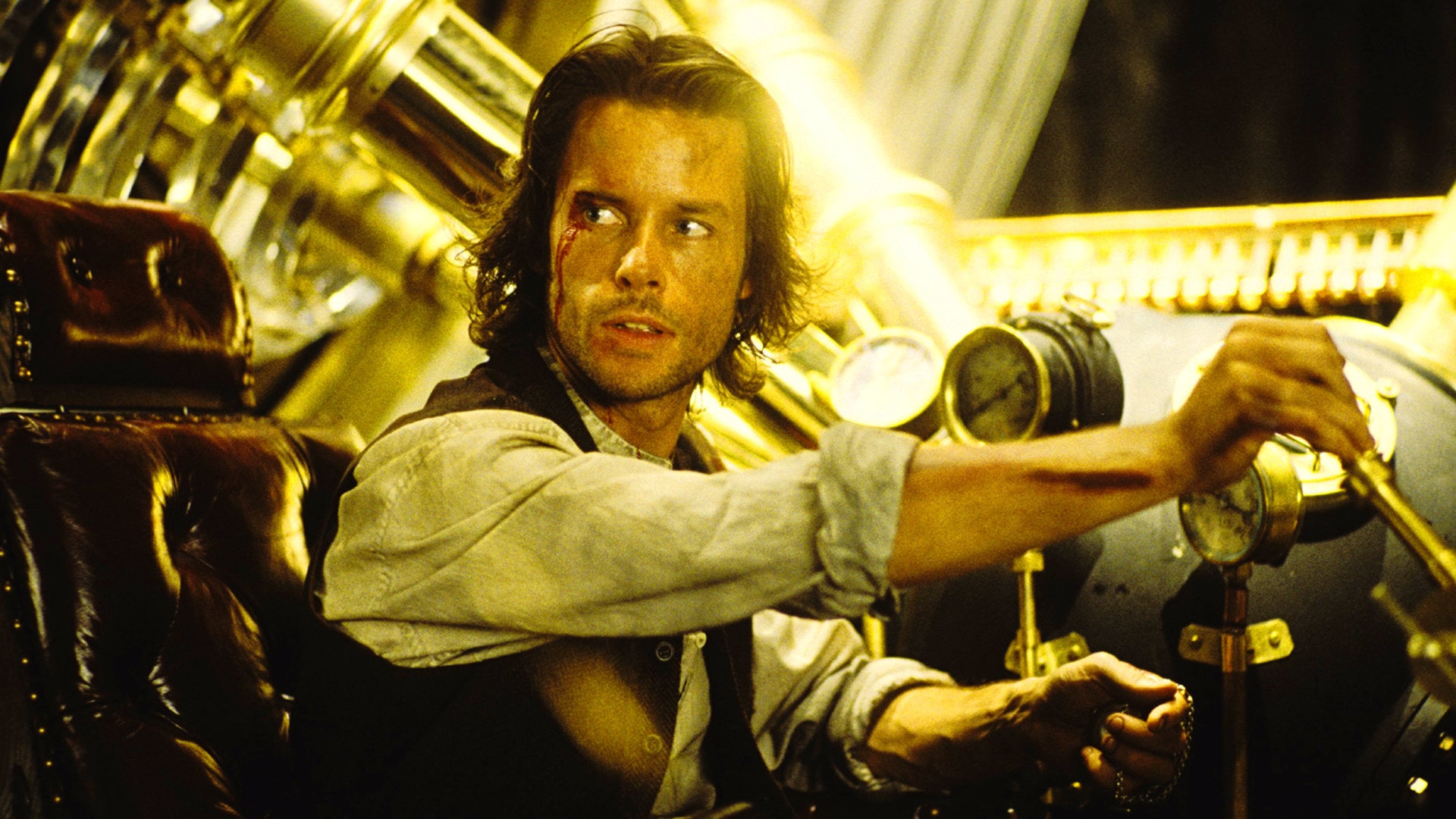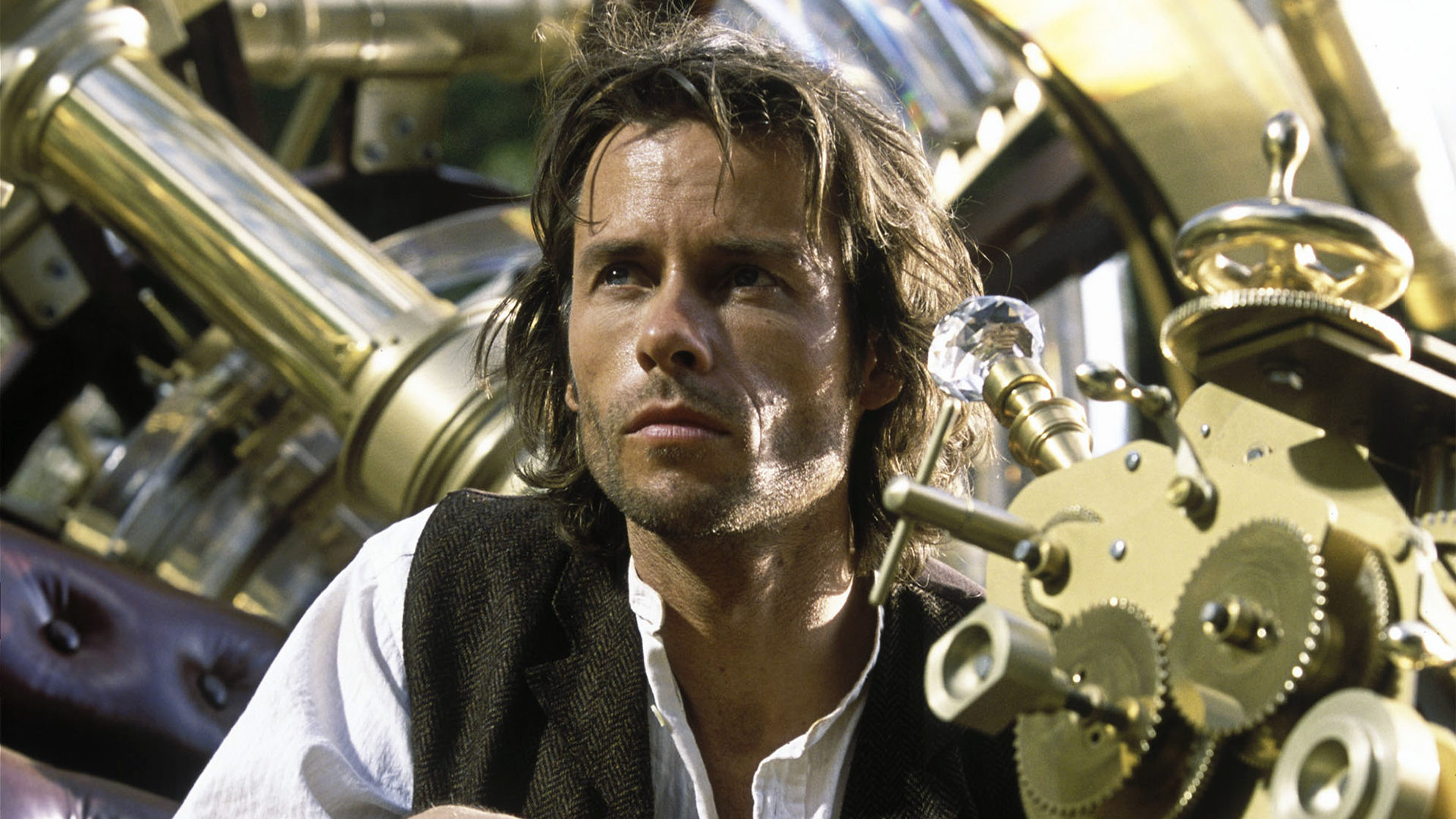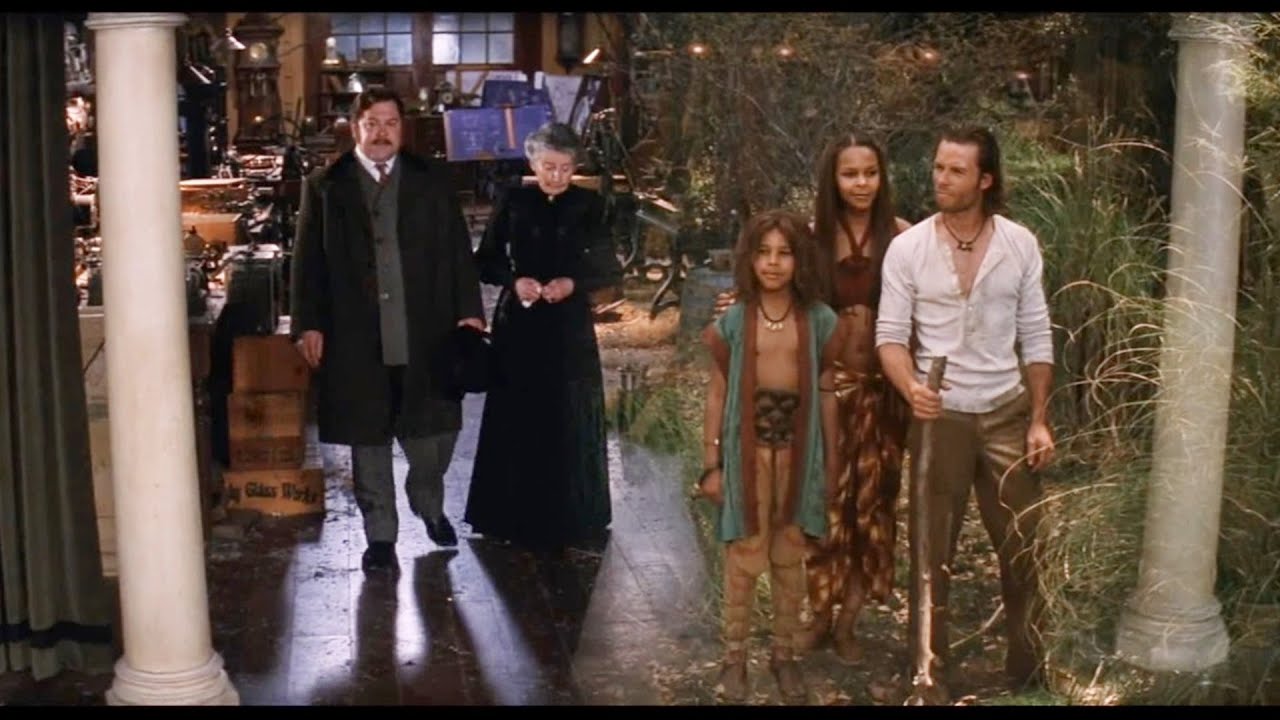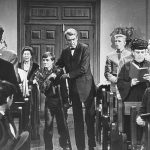🕰️ The Time Machine (2002) – A Journey Through Time That Blends Science, Adventure, and Romance

Directed by Simon Wells and inspired by H.G. Wells’ classic novel, The Time Machine (2002) brings a modern twist to the story of a scientist who journeys through time to unlock the mysteries of fate and the future. This visually rich adaptation explores themes of loss, hope, and human resilience, as protagonist Dr. Alexander Hartdegen (Guy Pearce) travels 800,000 years into the future in a desperate attempt to rewrite history and grapple with humanity’s fate.
🧩 Plot Overview: From Grief to the Ends of Time
Set in 1899, the story follows Dr. Alexander Hartdegen, an eccentric scientist and inventor in New York City who becomes obsessed with time travel after his fiancée, Emma (Sienna Guillory), is tragically killed. Driven by grief and the desire to undo her death, Alexander constructs a time machine, initially traveling back to change the past. When he learns that altering Emma’s fate may be impossible, he resolves to journey forward instead, hoping to understand why some things cannot be changed.
As he travels further into the distant future, Alexander encounters humanity’s evolution in the form of the peaceful Eloi and the terrifying Morlocks, led by the calculating Uber-Morlock (Jeremy Irons). Faced with new realities, he is forced to confront his own motivations and humanity’s destiny, ultimately choosing to take a stand against the Morlocks to save the future of the Eloi and find redemption for his own past.

🎬 Film Details:
- Title: The Time Machine
- Director: Simon Wells
- Release Date: March 8, 2002
- Cast: Guy Pearce (Dr. Alexander Hartdegen), Samantha Mumba (Mara), Orlando Jones (Vox), Jeremy Irons (Uber-Morlock), Sienna Guillory (Emma)
- Genre: Sci-Fi, Adventure, Romance
- Runtime: 1h 36m
- Box Office: $123 million (global)
🔥 Impressive Visual Effects and World-Building
The Time Machine captures the awe of time travel through stunning visuals and set design, especially as Alexander journeys through epochs and witnesses the world’s transformation. From the early 1900s to post-apocalyptic landscapes, each era is crafted with vivid detail. The effects highlight changes in architecture, landscape, and eventually the breakdown of human civilization, reflecting the film’s thematic exploration of progress, environmental disaster, and evolution.
The stark contrast between the Eloi and Morlock societies emphasizes the unsettling split in humanity’s future. The Morlocks’ underground lairs are particularly memorable, with dark, grimy settings that underscore the horror of their cannibalistic society.

💡 Themes of Fate, Resilience, and Humanity’s Dual Nature
At its core, The Time Machine grapples with the concept of fate and the possibility (or impossibility) of altering the past. Alexander’s journey reflects the emotional struggle between accepting loss and obsessing over what might have been. His attempts to save Emma mirror humanity’s broader struggle to correct its mistakes, but his inability to change the past serves as a poignant reminder of the limitations of power and control.
The division between the Eloi and Morlocks serves as an allegory for humanity’s dual nature, with the peaceful Eloi representing innocence and the Morlocks embodying primal survival instincts. Through these opposing societies, the film raises questions about the consequences of unchecked progress and the importance of compassion and resilience.
🎭 Guy Pearce’s Compelling Performance and a Strong Supporting Cast

Guy Pearce brings depth and sensitivity to Alexander, portraying a man broken by grief but driven by an unrelenting will to understand and, eventually, protect. His transformation from a grief-stricken scientist to a reluctant hero is believable and adds emotional weight to the narrative. Samantha Mumba as Mara, an Eloi woman who helps Alexander, brings warmth to the film, while Jeremy Irons as the Uber-Morlock provides a chilling yet intelligent antagonist, reflecting humanity’s darker potential.
Orlando Jones as Vox, the sentient AI, provides moments of levity and serves as a unique guide to the future. Vox’s knowledge and observations on humanity’s past add a sense of melancholy, reminding Alexander of the fleeting nature of civilizations and history.
⭐ Final Verdict: A Visually Rich, Emotionally Driven Sci-Fi Adventure

Directed by George Pal
Shown: Rod Taylor (as George)
The Time Machine (2002) is a fascinating reimagining of H.G. Wells’ classic story, combining romance, adventure, and speculative sci-fi in an exploration of loss, resilience, and humanity’s destiny. Simon Wells’ direction, coupled with impressive visual effects and a strong lead performance by Guy Pearce, makes this film a compelling watch. Though it may simplify some of the philosophical aspects of the original novel, The Time Machine still captures the essence of wonder and tragedy, making it an accessible and thought-provoking experience for fans of time-travel adventures.
For viewers who enjoy sci-fi with an emotional core and philosophical questions, The Time Machine offers a memorable journey that challenges our understanding of fate, legacy, and the true nature of progress.











